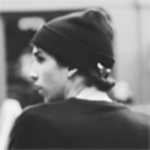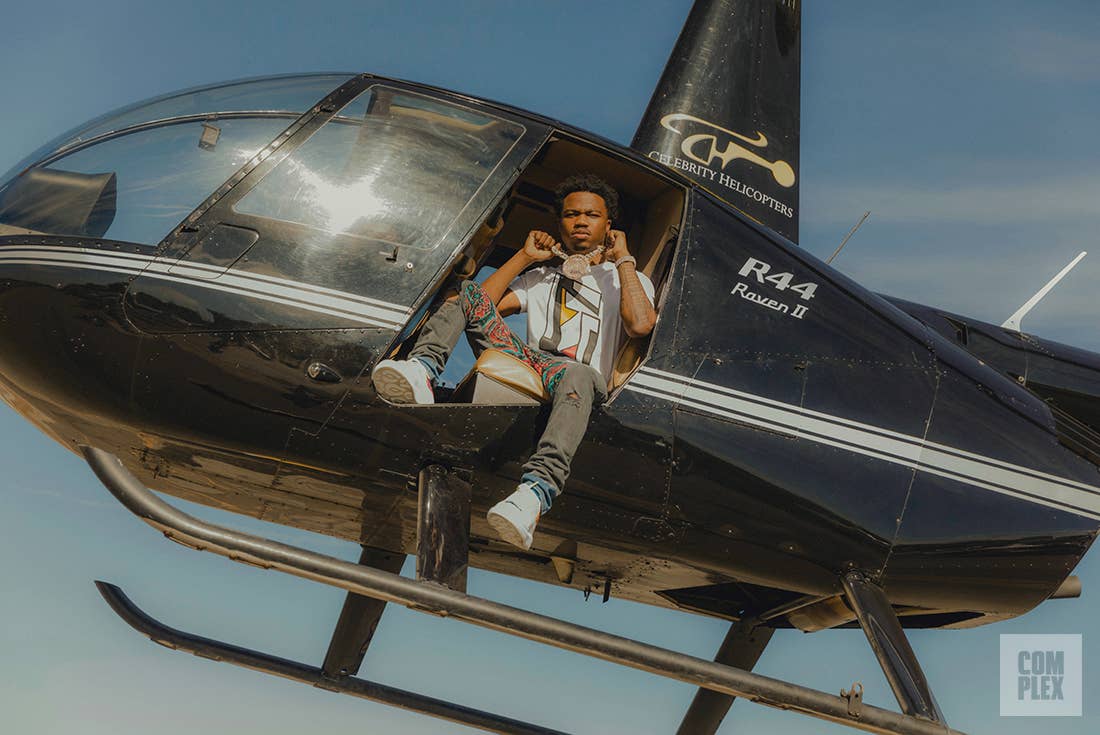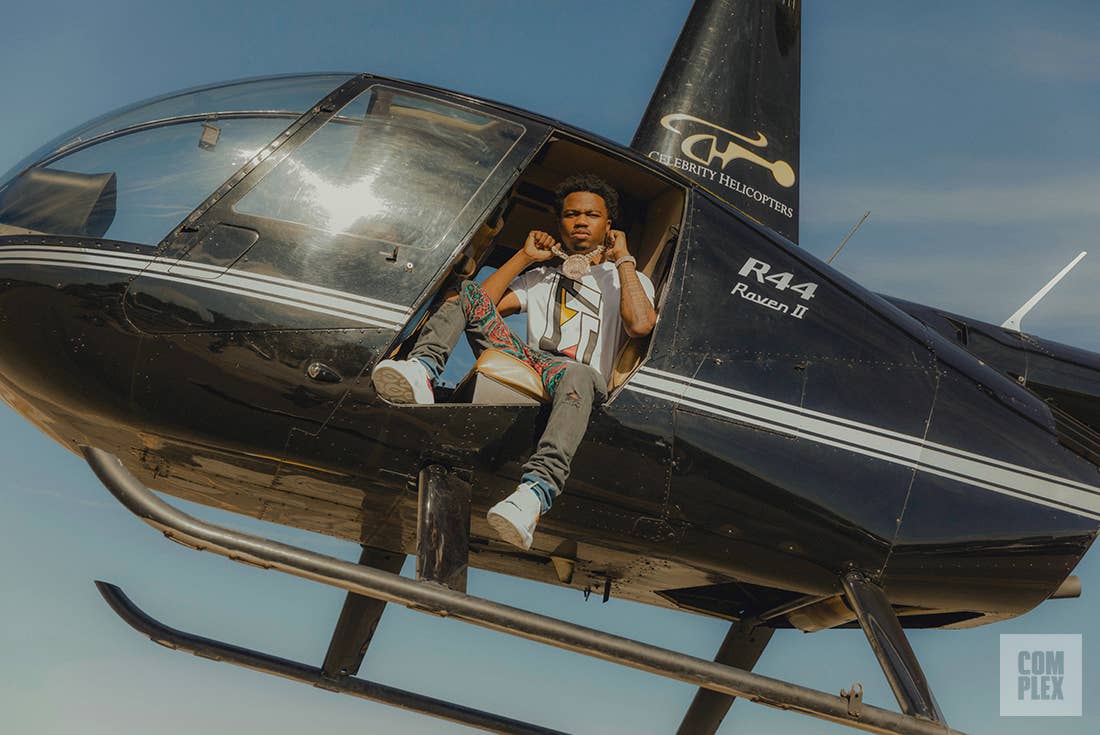
Roddy Ricch is staring at a wall across the room.
Holed up in the back corner of a quiet chicken and waffles spot in lower Manhattan, he repositions himself on a small wooden chair and fights back a yawn. Even in the mundane surroundings of this chain restaurant, though, he carefully analyzes his environment and files away observations in his head.
“Sitting at this restaurant, I might see a pan on the wall right there,” he says, pointing at a cast-iron skillet that’s hanging over a table on the other side of the room. “That pan may symbolize something for me. And I’ll make a song about how, metaphorically, life is heating up like a pot. Or some shit about how you’re on fire and water’s getting to boiling.”
Born Rodrick Wayne Moore, Jr., Roddy Ricch has spent his whole life paying close attention to everything happening around him. Since adolescence, the 21-year-old Compton rapper has been pulling on these experiences to write strikingly honest songs about street life. His first major breakthrough on a national level came with 2018’s Feed Tha Streets II mixtape standout, “Die Young,” a song about street violence written on the night of XXXTentacion's murder. In January 2019, Roddy followed that up with an appearance on close friend and mentor Nipsey Hussle’s final single, “Racks in the Middle,” which earned him multiple Grammy nominations. A few months later, the young rapper’s soulful vocals laid the foundation for Mustard’s Grammy-nominated “Ballin,” crowned the best song of 2019 by Complex.
On this rainy December afternoon, Roddy Ricch is just three days removed from the release of his chart-topping debut album, Please Excuse Me For Being Antisocial, and his phone has been lighting up with messages of congratulations all weekend. One comes from LeBron James, another from Young Thug. Roddy takes it all in stride, but he cops to being surprised by a co-sign from Rihanna, who recorded a video of herself dancing to “Out Tha Mud,” which he says will appear on a deluxe version of the album that he’s “about to drop.” Pulling up the clip of Rihanna on his phone, he laughs, “I was really tripping out about this shit.”
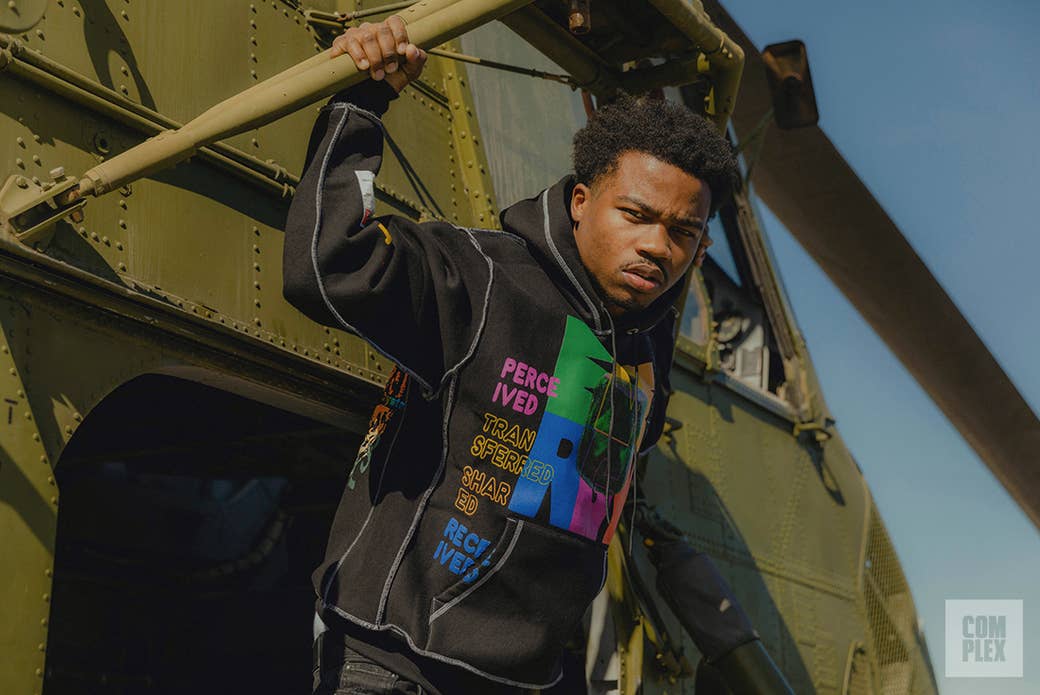
You wouldn’t know Roddy is in the midst of a career-defining moment by looking at him right now, though. As we wait for our food and make small talk about his recent cross-country flight from L.A., he’s easily the quietest person in the room. Roddy Ricch is always the quietest one in the room. He’s much more comfortable sitting back and observing the subtleties of those around him.
“Usually, the loudest in the room is the weakest,” he remarks, holding steady eye contact as he speaks. “The quietest man in the room, who is being very observant, is the smartest and the strongest. He’s pinpointing everyone else’s weaknesses. He’s understanding where his strengths are in the room, and figuring out everyone’s perspectives.” Talking in a slow, measured tone, Roddy continues, “He’s the listener. He gets to hear everyone’s point of view instead of just voicing his own and staying within his own head. He's in everyone else’s head, and his own, so he becomes the smartest man.”
Roddy understands that his ability to thoughtfully dissect the world around him is one of his biggest strengths as a songwriter. He credits this calculated approach, in part, to another Compton rapper.
“Kendrick Lamar taught me that life experience is an important part of being a good illustrator,” he says. “When you’re illustrating a story, you have to go based off of your personal experiences. When you write about shit you don’t know about, it’s not going to sound right, because you’ll miss the details.”
After navigating the streets of Compton as a teenager and having to face a series of violent events, including the death of his best friend, Roddy says he suffers from post-traumatic stress disorder. He admits that it’s difficult for him to open up about his past in most conversations. “It’s easier for me to just talk to you about general shit than my own personal ideas and experiences.”
“My city is known for police violence and gangs. That’s not good. I want my city to be known for private jets landing in that motherf*cking airport.”
Instead, he processes everything through music. Roddy never writes his lyrics before recording, and he says the studio is one of the only places he’s able to open up about these things—when the right mood is set. “A song like ‘Prayers to the Trap God’ describes what it’s like to be in the middle of a federal sweep,” he notes. “But I can’t sit up here and tell you what that’s like. When I’m in that mode and that feeling in the studio, I can sit there and really visualize what I was hearing and seeing. What was I doing? What was I eating? What I was watching? But I couldn’t sit up here and tell you that shit. I just couldn’t.”
Please Excuse Me For Being Antisocial opens with “Intro,” an intensely personal song that goes into detail about the challenges of growing up in Compton. “My big bro behind bars, for like two hundred years,” he raps over solemn piano chords from ATL Jacob and Billboard Hitmakers. “I got that call, I lost my dawg, and I don’t know how to feel/Gotta stay on savage time, you know it’s war time/I remember I ain’t used to leave the house without my .45.”
Roddy is intentional about filling his songs with detailed accounts of his own reality, and he’s intently focused on a target audience of those who came up in similar circumstances. Because of this, he doesn’t shy away from rapping about the less-than-glamorous parts of his life.
“I used to tell people I slept on the floor, in my songs,” he explains. “Listen, I said I slept on the floor. Nigga. That’s probably the most humble thing you can say. I can’t even list one rapper right now who has said, ‘I slept on the floor next to my brother right there. Bed bugs was biting the nigga.’ I’ve said that.”
With billions of streams, sold-out tour dates, and a lucrative deal with Atlantic Records, Roddy finds himself in a better position now, but the memories of those times are still vivid.
“I’m not far from it,” he stresses. “I’m only a year or two away from it. I remember what that shit was like. So I just talk about shit that’s real to me, and shit that’s normal to me. I feel like if people really listen to the message, and just sit there in honesty, they’ll see that there are messages within experiences they’ve had. They can analyze that and figure out their own situations. Hopefully that can help.”
Roddy credits much of his success so far to the role he’s assumed as an authentic “voice of the streets,” but as his profile rises, he knows his day-to-day reality will continue to change, and the experiences that he relies on to write songs will be different. It’s something he’s been thinking about a lot.
“I haven't figured it out,” he admits. “Honestly, I still be in the streets. Not running amok or trying to get arrested or no shit like that, but it’s in me. That shit’s still going on. At the end of the day, I’m not no ‘bang bang, shoot ’em up’ type of nigga. I don’t condone an overly capacitated amount of violence in my music. I don’t overly worship bullshit. I just give you the good and the bad, and let you choose which path you want to take.
“When I was in the trenches, I was experiencing a lot of shit,” he adds. “I still experience family shit and street shit a little bit. But I’ve got to experience more. I can’t just close myself off to the world, because then I won’t be inspired anymore. I won’t be able to talk about nothing.”
And there’s another, albeit less serious, issue he’s been grappling with lately. Roddy is known for his soulful vocal delivery on breakout songs like “Die Young” and “Down Below,” and he’s part of a generation of rappers who put a much larger emphasis on melody than those who came before them. But he doesn’t understand why everyone keeps saying he sings.
“It don’t sound like singing to me,” he argues.
It’s a little startling to hear this from an artist who crooned with a whole-ass choir on “War Baby” and turned Mustard’s “Ballin” into a damn near gospel song. But you get the sense he’s trying to make a bigger point by denying his status as a singer. Roddy feels as though he’s cut from the same cloth of traditional rappers, and he takes the craft extremely seriously.
“I don’t sing,” he repeats. “I don’t hear it. What I do is, I hold a note. But singing? Nah. Rod Wave sings. He’s a great singer.
“Me? I rap. I don’t sing.”
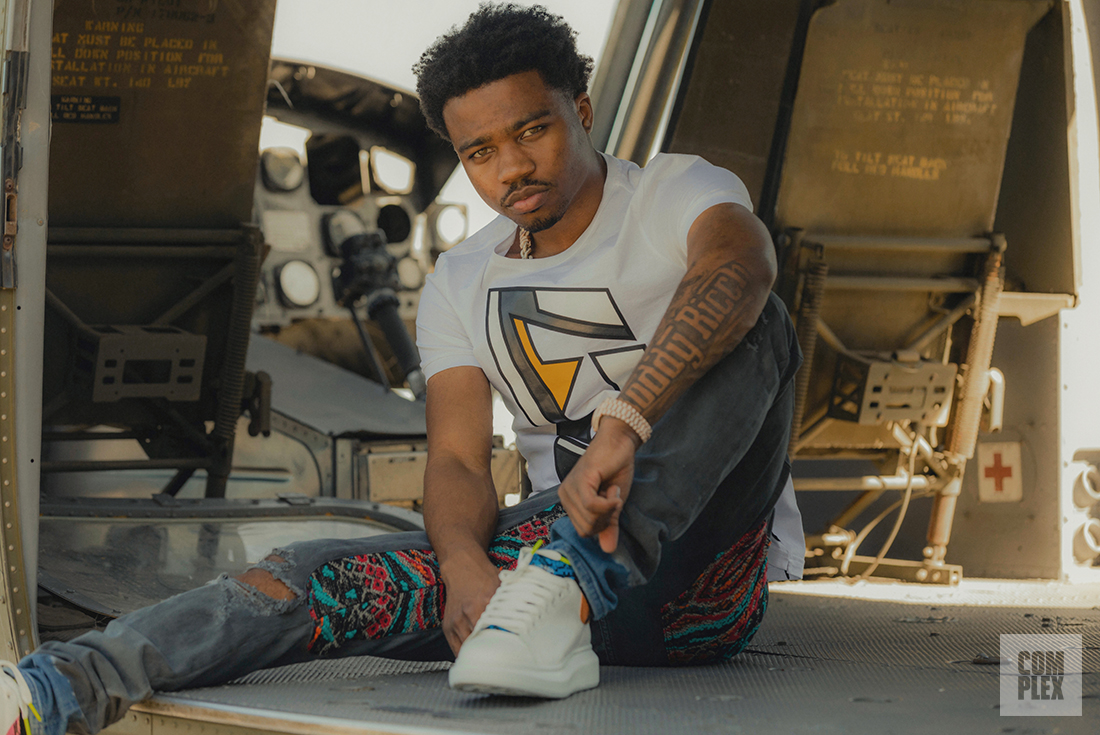
When Roddy Ricch was approached about this interview, he invited us to shoot photos at the Compton airport, near the streets where he grew up. Like everything he does, this is a careful, strategic decision that plays into a larger plan.
“My city is known for police violence and gangs,” he explains. “That’s not good. I want my city to be known for private jets landing in that motherfucking airport. A private jet really could land right there, for real, right across the street from my housing project. So what am I going to do about that shit? I’m going to shed light over there. I’m going to buy property in my city. I’m going to buy businesses in my city. I’m going to try and help make my city something better than what it used to be.”
Roddy knows his profile is growing, and people are watching. He’s aware that he has a voice and a platform that most people from his neighborhood are never afforded. He takes the opportunity to choose the location of a photo shoot like this seriously, because he knows these are the kinds of things he can do to help shift the perception of what Compton can become.
“I want to be the person to really open everybody’s eyes to what Compton really has to offer,” he stresses, explaining that he has dreams of entrepreneurs flying into the city, on their way to set up new businesses. “It's not just a bunch of shoot-’em-up [crimes] and police violence. We fucked up. We came from poverty, and we feel like we’ve got to remain the same, but we don't. There are people like me who have a voice. There are people like Kendrick who have a voice. There are different people who are coming up. And it’s beginning to change, with the leadership of niggas before us, showing us what kind of voice we’ve got for real.”
He learned this mentality by aligning himself closely with mentors like Nipsey Hussle and Meek Mill, attentively soaking up every piece of advice they passed his way.
“I feel like it was just mutual respect, and really just letting it happen naturally,” he says of his relationship with each. “With both of them, it never was something that was forced. While Meek was on vacation and Nipsey was working on Victory Lap, I got the chance to really just feel both of their auras at the same time.” Explaining that their bond went far deeper than music, he adds, “We related to each other. We came from the same places. We related before we tried to make it a public friendship or some shit like that. I really fuck with those guys.”
“I’m trying to create generational wealth for everybody in my family.”
As a child, Roddy went to the same church Kendrick Lamar attended. He remembers looking up to Lamar, and even got a chance to rap for him as a 14-year-old. Then, in early December, the two reconnected for the first time in years.
“I really just wanted to play him a couple songs off my album and see what he feel,” Roddy says. “And, you know, he don’t come outside for nobody, so this meant something. Before he pulled up, he told me he remembered who I was. He just told me how proud of me he was. We talked about family. We talked about so much shit.”
Another important figure in the early stages of Roddy’s career has been Mustard. “Growing up on the west side, I've been listening to him for 10 years,” he explains. “So me and him had a bond before we even met each other. It’s second nature with us, because we’re from the same side, and we fuck with each other on that level.”
The first song they made together was “Ballin,” which peaked at No. 16 on the Billboard Hot 100, and became the highest-charting song for both artists. They connected again on PEMFBA standout “High Fashion,” and they have more material in the vault.
“I’ll be working until, like, 10 or 11,” Roddy says, laughing about his recording habits with Mustard. “He’ll be like, ‘I’ve got to go. I’ve got the kids, man.’ So I’ll stay and work until, like, two or three, then I’ll hit him with all these songs in the morning. He’s like, ‘What the fuck? Nigga, you made all this shit?!’”
Roddy says he’s aware of chatter from fans who hope he’ll make a full collaborative album with Mustard. “Yeah, we talk about that shit all the time,” he says, hinting at a joint project that might materialize in the future. “We’ve got enough songs to do that shit, for sure.”
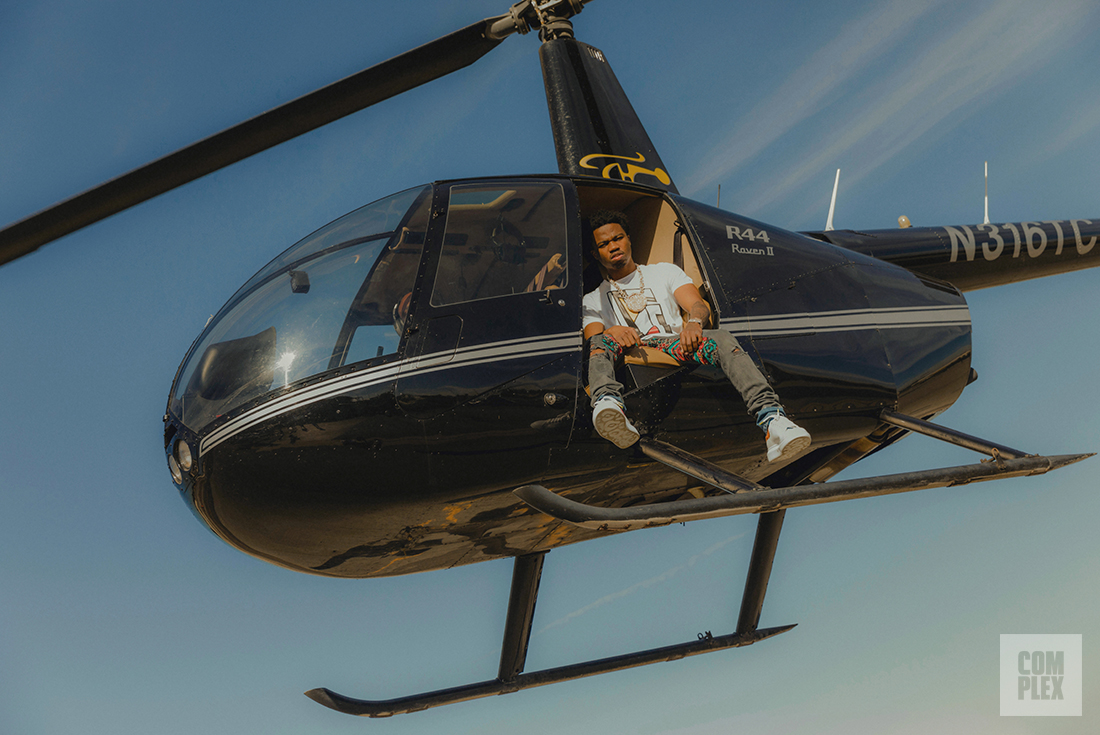
Being taken under the wing of veteran artists gave Roddy a leg up over other young rappers, and he says it only happened because he wasn’t afraid of giving credit to those who came before him.
Bringing up a common mentality in rap to avoid being honest about taking influences from past generations, Roddy gets upset and raises his voice. “Niggas are still hating on me just because I look up to certain niggas,” he says. “And it just don’t make no sense to me. I don’t see why you’re going to hate on a person that’s real with themselves. I’m real with myself, bro. I was definitely inspired by these niggas. They’re great. They’re GOATs, nigga.”
Naming artists like Future and Young Thug as major musical inspirations, he explains, “I was born in ’98. I was born after Tupac and Biggie died. What do you expect me to rap like? Who do you expect me to look up to? These niggas was the soundtrack to my life at one point, when I was in the trenches doing bad, and crying, and really going through it. These were my niggas getting me through this shit.”
Roddy remembers being introduced to Young Thug by Nipsey Hussle. “Nipsey knew that Thug was a nigga that I really fuck with, and he wasn’t a hater nigga,” he says. “He was like, ‘Let’s pull up on him.’ He understood it. Man, I’m almost 10 years younger than these people. They’re like my older brothers.”
From there, Thug and Roddy developed a close bond. Before the arrival of PEMFBA, Thug even made two separate $20,000 bets that Roddy would achieve milestones the young rapper didn’t even think he was capable of.
“He bet $40,000,” Roddy says. “And both of these shits happened. So I was just like, ‘All right, I owe him $40,000.’ And just for him believing in me like that, showing that type of love, and never changing on me, I decided to rap on his shit,” he adds, referencing his recent freestyle over Thug’s “Bad Bad Bad” instrumental on Power 106. “Just because that’s my nigga. And all the YSL guys, like Keed, Gunna, everybody over there—it’s all love with them.”
Roddy’s rapid ascent hasn’t been without low points, though. He began pursuing his music career in earnest after a two-week stay in county jail as a teenager, but legal problems have continued to follow him. Preparing for the release of his debut album, he was arrested and let out on bond in August after allegedly grabbing his girlfriend during an argument at his home. After a thorough review of the allegations, the Los Angeles County District Attorney’s Office determined there was no merit in the case. No charges were filed and the case was dropped.
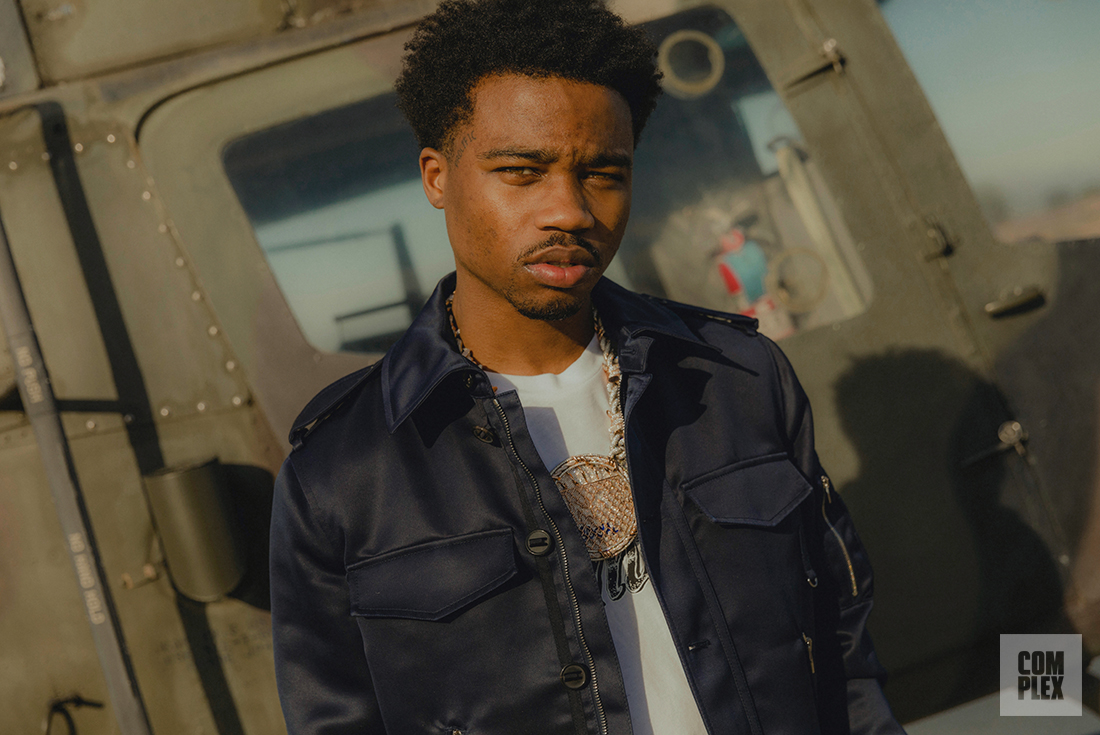
Now, Roddy is focused on using the money he’s earning from rap to develop a sustainable family business. “A family fortress,” he clarifies. “I’m trying to create generational wealth for everybody in my family.”
At the moment, Roddy is working to set his inner circle up with property management and truck driving businesses. “I’m just trying to basically create my situation for everybody, where it’s an even playing field,” he explains. “Maybe you don’t make as much money as me, but you are free to do what you need to do, because you are in a position to do that. I want everyone around me to have real freedom.”
When his cousin recently graduated from high school and didn’t know what he wanted to do next, Roddy brought him on tour and started showing him the ropes of how to become an artist manager. “I put him under my managers and told him to just watch what they do. When I get my artists, we’re going to make sure he gets a job. That’s a job opportunity.”
Roddy acknowledges that he’s still learning as he goes, though. “I’m young,” he points out. “I’m not no fucking mogul. I’m not a nigga who got a fucking corner office in the top of Beverly Hills. Fuck all that. I’m just trying to do this shit for my people. I’m doing everything I can do, as far as job opportunities and really just taking niggas under my wing.”
By watching others, he’s learned that in order to be successful and build the family fortress he sees for himself, he needs to stay focused and ignore the distractions of wealth and fame.
“A lot of these niggas get so wrapped up in this industry shit they forget what the point of making music was, and they start making shit for the club,” he says. “No, nigga, make that shit for the niggas who are going through it. Make that shit for the niggas who really need to hear this shit. That was me, at one point. I ain’t even had nobody to talk to me, so I turned to music from niggas I didn’t even know. I could relate to their music, and they got me through that shit, man.”
Now, in a position to make music for those who find themselves in the situations he was in just a couple years ago, Roddy takes the responsibility seriously. Leaning forward, he lays out exactly what he hopes his youngest listeners learn after hearing his own story on Please Excuse Me For Being Antisocial.
“Never be ashamed of who you are, your story, or how you react to situations,” he stresses. “Don’t ever be ashamed of how you communicate with people. Don’t ever be ashamed of the person you are. Be you.”
Roddy is also getting more comfortable with himself, despite the “antisocial” tag he’s labeled himself with. He’s ready to be a star.
“At first, I used to feel like I had to be so conservative with who I was, which was some weird shit. But I’m going to open up when I feel like it. I don’t have to be too closed in or too social.”
“I could just be me.”
